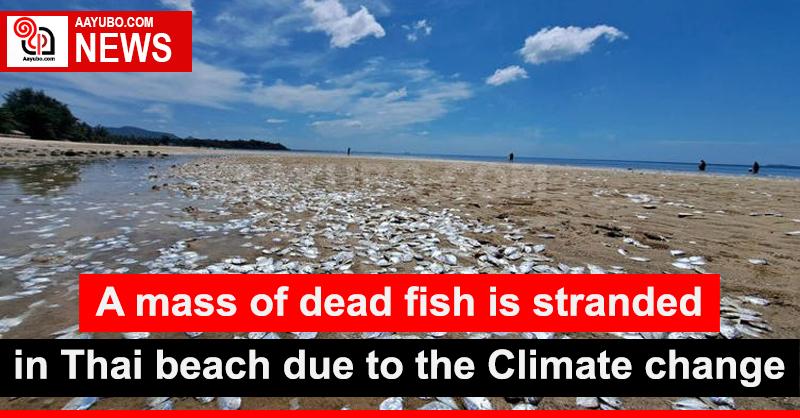A mass of dead fish is stranded to Thai beach due to climate change

According to an expert, climate change might have triggered a plankton bloom, leading to the death of numerous fish found stranded along approximately 4-kilometer (2.5-mile) section of beach in Thailand's Chumphon province. Thon Thamrongnawasawat, the deputy dean of Kasetsart University's Faculty of Fisheries, explained that this bloom is a natural event that depletes oxygen levels in the water, ultimately suffocating the fish.
The speaker mentioned that natural occurrences like coral bleaching and plankton blooms have been happening for thousands to tens of thousands of years. However, when global warming occurs, these phenomena become more severe and happen more frequently. Local authorities stated that plankton blooms typically occur once or twice a year and usually last for two to three days. To conduct further evaluation and analysis, officials have gathered samples of seawater.
This year, marine heatwaves have emerged as an increasing worry on a global scale. The British Met Office reported that the global sea surface temperatures in April and May reached the highest levels ever recorded for those months. The cause of this phenomenon is attributed to two factors: the occurrence of the natural climate event El Niño, which has a warming effect worldwide, and human-induced climate change, leading to elevated temperatures for both oceans and land. In recent times, Texas experienced the appearance of numerous dead fish on its beaches, while experts are cautioning about the potential emergence of algal blooms along the British coastline due to the rising sea temperatures.
In Southern California, there has been a concerning occurrence of numerous dolphins and sea lions washing up on beaches, either dead or ill, due to a harmful algal bloom. While the algal blooms in California were primarily caused by strong coastal upwelling rather than high temperatures, scientists predict that climate change will likely contribute to an increase in toxic algal blooms, as certain types thrive in warmer water. According to Sarah Perkins-Kirkpatrick, a climate scientist from the University of New South Wales in Australia, this trend is not limited to Southern California, as regions like the Great Barrier Reef in Australia and coastal areas in England are currently experiencing severe marine heatwaves that can have detrimental effects on local ecosystems.
News source - CNN
277 Views






Comments